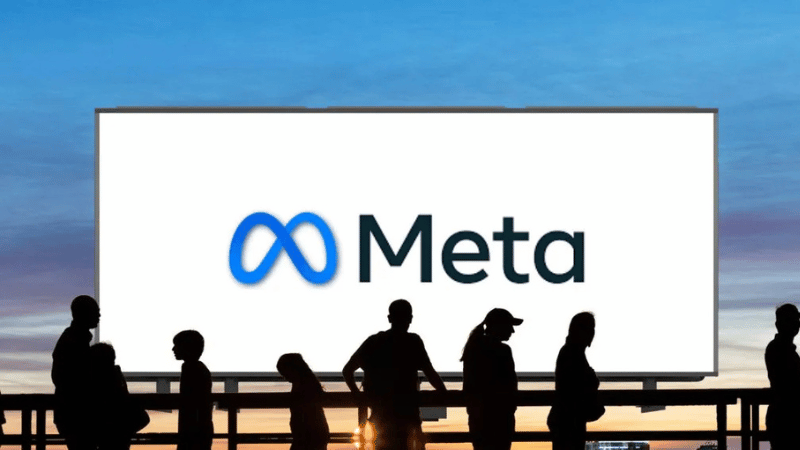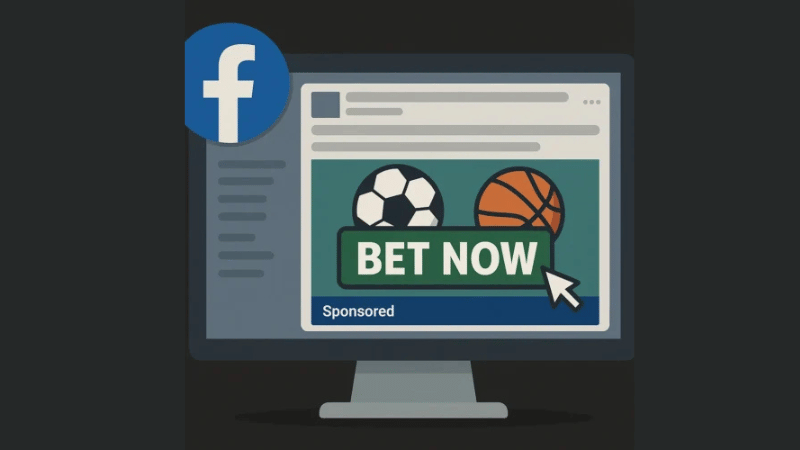The year 2026 is keeping the ad ops community on edge due to a series of new regulations surrounding Meta’s casino real-money ads. Therefore, anyone operating in this sector who does not grasp the rules is highly likely to have their campaigns completely wiped out. The new context forces advertisers to control everything from licenses and ad creative to the distribution method, especially with Meta casino real money, the group most closely scrutinized due to its connection with financial risk. Once you correctly understand Meta’s requirements, campaign deployment will be more stable, limiting violation errors and keeping accounts safe in the long term.
Do you want to run Black or Grey Hat verticals only to have your campaign fail from the start? Optimal is here to untangle every knot for you. With over 10 years in the industry, we clearly understand how to keep campaigns alive for as long as possible. Optimal provides a system of high-quality, stable, and pre-optimized accounts, helping you limit risk and focus on what you need: results.
Whether you are running a casino, crypto, finance, or any challenging vertical, the Optimal team always has a corresponding solution. We don’t just rent gambling ads on Facebook accounts; we provide continuous support, guidance, risk warnings, and technical assistance when needed. If you want to launch a campaign, Optimal will take care of the rest to ensure smooth operation, fewer errors, and easy scaling.
The legal framework for Meta Casino advertising in 2026
When it comes to the advertising environment involving real money elements, Meta is no longer operating superficially but is tightening control from the definition stage to the licensing mechanism. Meta casino real money is considered the most sensitive group because all forms of participation and reward are tied to financial value.

Authorization requirement and permitted advertising scope
Meta only allows advertising for online casino simulation activities when there is no opportunity to exchange for real money or items of equivalent value. Only when the content is directly related to financial value must the advertiser seek authorization from Meta.
This process is located within the Meta Business Suite, under the Authorization and Verification tab. Any account that has not been licensed will be immediately rejected, even if it only indirectly refers to content with a betting element.
Ads are only permitted to target users aged 18 or older and must never appear in unsupported markets. Violating these criteria will cause the campaign to enter a manual review status or be temporarily locked.
Community standards applied to betting-related content
Whether authorized or not, all content must adhere to the full community standards. Meta requires ads not to suggest excessive betting behavior, not to stimulate users toward financial risk, and to ensure appropriate age warnings.
Meta’s experts in community safety will intervene when content shows signs of infringing on user rights, especially vulnerable groups such as young people, those with a history of financial instability, or those with continuous betting behavior.
Obligation to self-comply with the law
In parallel with meeting platform policies, advertisers must independently comply with the laws in the markets where they operate. Meta does not interfere with the legal aspect of individual countries. This means that even if licensed by Meta, the account can still be penalized if the content violates local law.
In Vietnam, online betting and gambling activities are generally severely restricted. Therefore, all campaigns with real money elements are considered violations of the law unless they have very specific licenses from state authorities.
If discovered, the advertiser may face administrative penalties, profit confiscation, or even criminal prosecution, depending on the severity. Platforms will also lock associated ad accounts.
In many other countries, the openness to betting ads is wider but still depends on specific regulations. In markets where it is permitted, advertisers must demonstrate that the operating entity is legitimate, holds a license from the gaming authority, and has measures in place to protect users, particularly those under 21.
If violated, European countries often impose high fines, suspension of operations, or an embargo on payment methods related to betting services.
Besides legal risk, advertisers may lose the right to run ads in the future. Meta often implements mechanisms to disable facebook ads account ads, restrict distribution, or flag content categories as high-risk. When that happens, recovery is very difficult and prolonged, directly impacting the budget and corporate reputation.
How Meta controls content related to Casino Real Money
When entering the group of content with real money elements, Meta’s system no longer operates gently but switches to a multi-layered control status. Casino Real Money falls into the high-risk category because it is directly linked to betting behavior and the potential for financial loss. Meta sets up a tight monitoring mechanism to prevent content from affecting underage users or regions that prohibit this type of advertising.

Review layers applied to gambling ads
Meta uses multiple parallel review layers. The first layer is automated, using language and image recognition models to detect content potentially related to betting. The second layer is context analysis, assessing the message to see if it encourages risky financial behavior.
If the system feels the content is not clear enough or shows signs of legal liability avoidance, the ad will be sent for manual review. Unauthorized accounts will be eliminated from the first round. The system also checks the display market to ensure the ad does not appear in countries that prohibit online betting activities.
Creative standards that help ads pass review more easily
Meta casino real money ads require the creative content to be honest, not to exaggerate winning odds, not to paint a picture of getting rich quickly, and not to use overly stimulating images. The language must be transparent about risk, clear about age, and demonstrate responsibility toward betting behavior.
Images should opt for neutral tones, avoiding a feeling of excessive lure or inflating the experience. Additionally, the creative must clearly state the service provider, avoiding vague language that could lead to user misunderstanding. Content with a clear and transparent structure always has a higher review success rate because it aligns with the user protection standards set by Meta.
Behaviors are easily blocked, and violation recognition mechanisms
Three groups of behaviors are quickly blocked by the system. Meta’s machine learning models are very good at recognizing this type of avoidance, so the flagging rate is quite high.
- The first group is directly suggesting rewards redemption, even if subtly embedded in the image or text.
- The second group is strongly urging betting in a tone that easily leads to the misunderstanding that users can win big or earn quick profits.
- The last group is deliberately evasive content, such as using symbols or slang to describe gambling behavior.
In addition to blocking ads, the system continuously monitors account performance. If an account is seen continuously creating policy-violating content on the same topic, Meta may restrict the right to run ads or place the account in the high-risk group. Once in this group, recovery becomes more difficult because every subsequent ad is scrutinized more closely than usual.
Ad approval system by type of betting
Each group of betting products has a different level of sensitivity, so Meta sets up a separate review mechanism for each type. Correctly understanding each review tier helps the campaign maintain a safe status and limit the risk of being blocked.

Specific requirements for sportsbook, casino, and real money rival games
Sportsbook is classified by Meta as a high-risk group because it is directly related to real-world results and financial fluctuations. Advertisers are strictly required to have a valid license from the regulatory body in the market of operation. Content must clearly state the nature of the service, avoid implying certainty of winning predictions, and must not stimulate users to bet continuously.
A real money online casino requires transparency and verification of the operator. Meta often requests the upload of business profiles, operating region information, licenses, and product structure. All creative elements must display appropriate warnings, avoiding overly enticing images or depicting rewards as a guaranteed source of profit.
Real money rival games are scrutinized more closely because the reward mechanism is often complex. Advertisers need to provide a clear description of the operation, the prize money source, and the actual win-loss ratio. This group is easily misjudged, so all messages must be transparent, must not create a feeling that the chance of winning depends too much on skill, or guarantee results.
Permitted markets and the level of unlocking in each region
Meta segments regions by the level of permission for real money advertising based on the laws of each country. Some markets, like the UK, Canada, or certain European countries, are broadly unlocked because they have a clear legal framework and a transparent licensing system. Advertisers only need to provide a valid license and adhere to age control requirements.
Conversely, markets like Vietnam, Singapore, or some South Asian countries are heavily restricted. Real money advertising is rarely allowed to appear unless there is a specific license from state authorities. Meta will automatically reject all campaigns with a betting element in this region, even if the account has previously been authorized in another market.
In countries with moderate openness, Meta requires verification of business information, payment data sources, and distribution scope. Campaigns with incorrect positioning or targeting unsupported regions will be locked immediately.
Additional conditions for campaigns targeting sensitive age groups
When a campaign shows signs of reaching the borderline group, Meta requires additional information to prove the effectiveness of the age filtering mechanism. Advertisers must use an authenticated targeting system, avoiding interest groups that could easily overlap with underage individuals.
Furthermore, the content must limit all elements that cause high excitement. Scenes simulating big wins, overly enthusiastic expressions, or strong calls to action will be judged as inappropriate for sensitive age groups. Campaigns struggle to pass review if they lack warnings or messages encouraging users to control their financial behavior.
Frequently Asked Questions
Yes. Each format has its own licensing, and Meta does not default to allowing cross-permission between different financial risk products.
Possibly. Meta considers this a sign of violation of regional coverage and will handle it similarly to policy avoidance behavior.